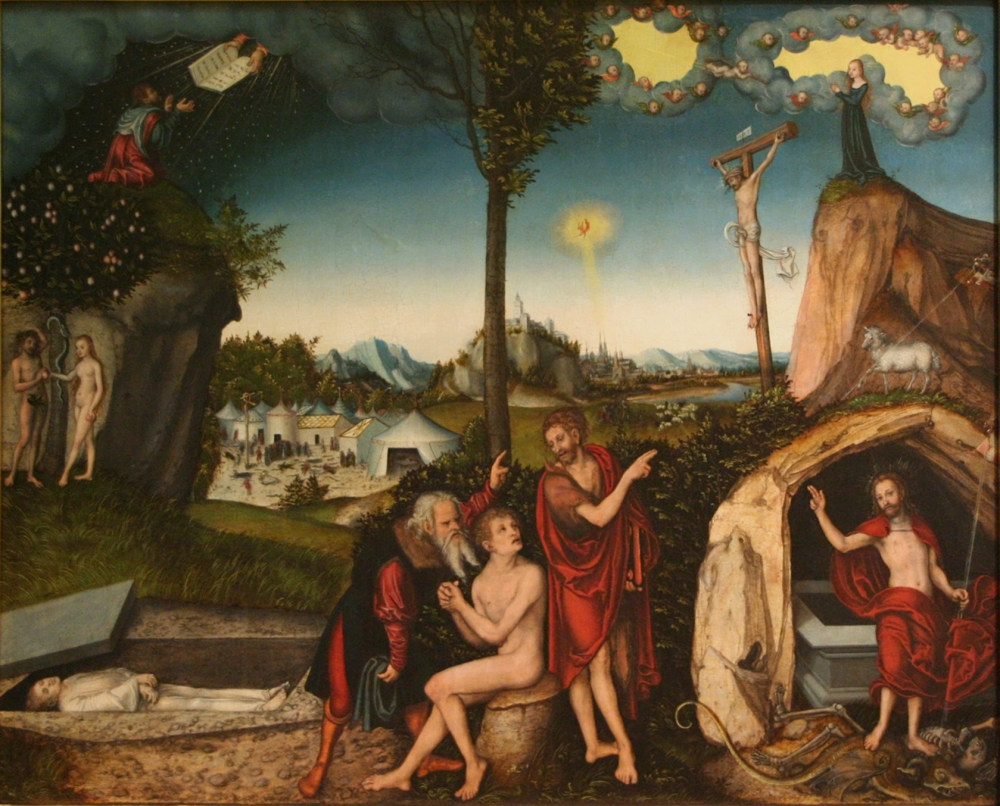
Prayer of the Day
Almighty God, Your servant Clement of Rome called the Church in Corinth to repentance and faith to unite them in Christian love. Grant that Your Church may be anchored in Your truth by the presence of the Holy Spirit and kept blameless in Your service until the coming of our Lord Jesus Christ, who lives and reigns with You and the Holy Spirit, one God, now and forever.
Clement (ca. A.D. 35–100) is remembered for having established the pattern of apostolic authority that governed the Christian Church during the first and second centuries. He also insisted on keeping Christ at the center of the Church’s worship and outreach. In a letter to the Christians at Corinth, he emphasized the centrality of Jesus’ death and resurrection: “Let us fix our eyes on the blood of Christ, realizing how precious it is to His Father, since it was poured out for our salvation and brought the grace of repentance to the whole world” (1 Clement 6:31). Prior to suffering a martyr’s death by drowning, he displayed a steadfast, Christ-like love for God’s redeemed people, serving as an inspiration to future generations to continue to build the Church on the foundation of the prophets and apostles, with Christ as the one and only cornerstone. (from The Lutheran Church-Missouri Synod website, see Blogroll on sidebar)
Reflection: In the bio above and in the quote below the word “fix” is employed. In the Prayer of the Day for the 5th Sunday after Easter, the Church prays, “Grant that we may love what You have commanded and desire what You promise, that among the many changes of this world our hearts may be fixed where trues are found, through Jesus Christ, Your Son, our Lord…”. I like to play off that word “fix”. Our hearts, that is, our wills are fixed, that is, guided, repented, repaired in the fruit of the joys of His crucifixion and resurrection: His forgiveness for us, in us, with us, His life in our lives. We can not repair our hearts, our wills on our own. No one did heart surgery on himself, one needs a physician. We are fixed by fixing our hearts and eyes on Jesus Christ and that “fix” is prayer, the prayer of faith in the Lord, in Whom we are made one in Christian love.
From Pastor and Bishop Clement’s Letter to the Corinthians:
This is the way, beloved, in which we found our salvation, Jesus Christ, the high priest of our offerings, teh protecotor and helper of our weakness (cf. Heb. 2: 17, 3:1, 4: 15)
Through him we fix our eyes on the heights of heaven, Through him we see mirrored the flawless and sublime countenance of God (cf. 2 Cor. 3:18),
Through him the eyes of our heart have been opened, Through him our foolish and darkened understanding springs up to the light,
Through him the Master has willed that we should taste immortal knowledge;
For “since he is the express image of his greatness, he is as much superior to angels as his title is superior” to theirs (cf. Heb. 1:3-4)
Let us then, men and brethren, engage in our service with complete earnestness under his faultless order. Let us consider those who serve under our military commanders, with what good discipline, subordination, and obedience they carry out orders. Not all are prefects or tribunes or centurions or captains of fifty and so on, but “each in his own rank”(I Cor. 15:23)carries out orders under the emperor and the commanding officers.The great cannot exist without the small; neither can the small exist without the great: there is a certain mutuality in the whole, and this is beneficial to it.
















